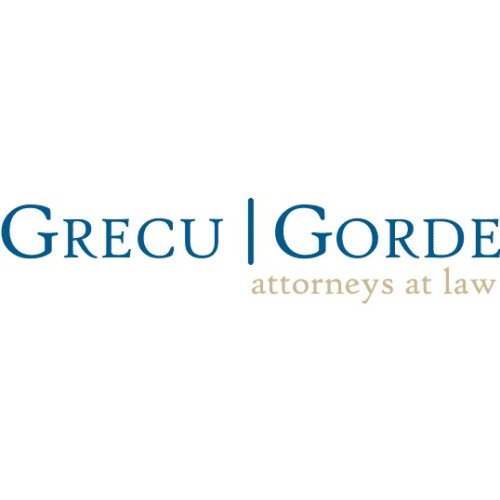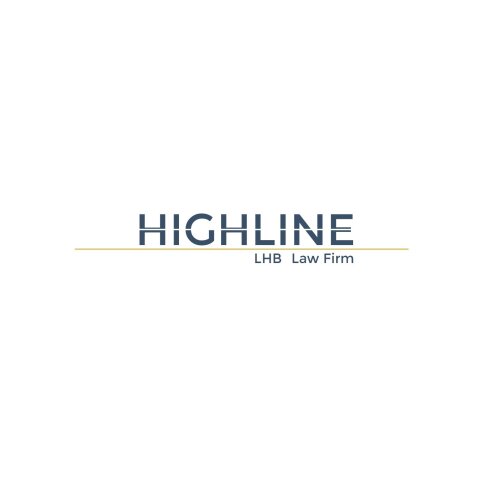Best State, Local, and Municipal Law Lawyers in Romania
Share your needs with us, get contacted by law firms.
Free. Takes 2 min.
Or refine your search by selecting a city:
List of the best lawyers in Romania
About State, Local, and Municipal Law in Romania
State, Local, and Municipal Law in Romania encompasses the set of legal provisions that govern the relationship between the state's central authorities and local government entities, including municipalities, towns, and counties. This branch of law deals with the powers and responsibilities of local governments, public administration, and the management of local affairs, such as public services, zoning, and local budgets. These laws are designed to ensure that local authorities operate within the legal framework established by the Romanian Constitution and national legislation, while accommodating regional and local needs.
Why You May Need a Lawyer
Seeking legal assistance in the field of State, Local, and Municipal Law in Romania can be crucial in several scenarios:
- Disputes with local government decisions on zoning, land use, or building permits.
- Issues related to municipal services, such as waste management or public utilities.
- Involvement in public procurement processes or tenders at the local level.
- Disagreements over local fees, taxes, or administrative charges.
- Guidance on compliance with local regulations for businesses or development projects.
- Challenging or seeking understanding of decrees or ordinances passed by local councils.
Local Laws Overview
Local laws in Romania are influenced by both national legislation and the autonomy granted to local governments. Key aspects include:
- Administrative Structure: Local authorities include municipal councils and county councils, under the supervision of elected mayors and presidents of county councils.
- Budgetary Authority: Local governments prepare and manage their budgets, with certain local taxes and fees serving as revenue sources.
- Public Services and Utilities: Local authorities are responsible for vital services like education, health, emergency services, and transportation.
- Zoning and Urban Development: Municipal governments control land use and urban planning in accordance with the national strategic framework.
- Public Order: Local police forces ensure compliance with municipal regulations and maintain public order.
Frequently Asked Questions
What is the role of a municipal council in Romania?
A municipal council is responsible for establishing local regulations, managing public resources, and working with the mayor to address the community’s needs.
How can I contest a zoning decision by my local government?
You can typically file an administrative complaint or seek judicial review in court. Consult a lawyer for guidance on procedural steps and legal grounds.
What kind of taxes can local governments impose?
Local governments can impose taxes such as property taxes, local income taxes, and charges for public services. These must align with national tax regulations.
How are local governments funded in Romania?
Through local taxes, fees for services, state subsidies, and grants from the central government or EU funds for specific projects.
Can a local government in Romania pass its own laws?
Local governments can issue regulations and ordinances within the scope of powers granted to them by national laws, focusing on local administrative matters.
What are public procurement processes at the local level?
Public procurement is the process by which local governments purchase goods, services, and works. It must comply with national and EU regulations for transparency and fairness.
How do local councils interact with national authority?
Local councils operate independently but within the framework of national laws. The Ministry of Development, Public Works, and Administration oversees compliance with state policies.
Can local government employees be held accountable for misconduct?
Yes, they can face disciplinary actions, administrative penalties, or criminal charges depending on the severity of the misconduct.
What is the process to initiate a local referendum?
Local referendums can be initiated by local councils or by citizen petition if there is sufficient support, allowing citizens to vote on specific issues directly.
What resources are available for understanding local laws?
Legal experts, municipal websites, and official publications from the local government provide information on local regulations and guidelines.
Additional Resources
For more information on State, Local, and Municipal Law in Romania, consider the following resources:
- Ministry of Development, Public Works, and Administration
- Romanian Municipalities Association
- County Councils Union of Romania
- Official Gazette of Romania
- Local government websites and their respective legal and policy documents
Next Steps
If you need legal assistance in State, Local, and Municipal Law in Romania, consider the following steps:
- Identify the specific issue or legal question you need to address.
- Consult with a specialist attorney who has experience in Romanian local laws.
- Gather all relevant documents, including correspondence with local authorities, plans, permits, and notices.
- Schedule a consultation to discuss your case and develop a legal strategy.
- Explore logistical aspects like fees, timelines, and potential outcomes.
- Stay informed about developments in Romanian state, local, and municipal legal frameworks.
Lawzana helps you find the best lawyers and law firms in Romania through a curated and pre-screened list of qualified legal professionals. Our platform offers rankings and detailed profiles of attorneys and law firms, allowing you to compare based on practice areas, including State, Local, and Municipal Law, experience, and client feedback.
Each profile includes a description of the firm's areas of practice, client reviews, team members and partners, year of establishment, spoken languages, office locations, contact information, social media presence, and any published articles or resources. Most firms on our platform speak English and are experienced in both local and international legal matters.
Get a quote from top-rated law firms in Romania — quickly, securely, and without unnecessary hassle.
Disclaimer:
The information provided on this page is for general informational purposes only and does not constitute legal advice. While we strive to ensure the accuracy and relevance of the content, legal information may change over time, and interpretations of the law can vary. You should always consult with a qualified legal professional for advice specific to your situation.
We disclaim all liability for actions taken or not taken based on the content of this page. If you believe any information is incorrect or outdated, please contact us, and we will review and update it where appropriate.
Browse state, local, and municipal law law firms by city in Romania
Refine your search by selecting a city.

















